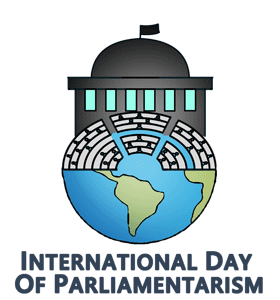

International Day of Parliamentarism
Quick Facts - IN
| HashtagsCompiled on | #Internationaldayofparliamentarism |
|---|---|
| Related Hashtags | #Parliament, #Parliamentarism, #India |
| 2023 Date | 30 June 2023 |
| 2024 Date | 30 June 2024 |
2023 Holidays & Dates
| India & Common Holidays | ||
| Misc. & Int'l. Observances | ||
| Jewish Holidays | ||
| Muslim Holidays |
|
|
|
|
